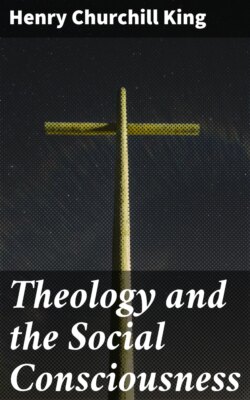Читать книгу Theology and the Social Consciousness - Henry Churchill King - Страница 9
На сайте Литреса книга снята с продажи.
III. THE SENSE OF THE VALUE AND SACREDNESS OF THE PERSON
ОглавлениеThe third element in the social consciousness, the sense of the value and sacredness of the person, follows naturally from the sense of like-mindedness and of mutual influence, but needs distinct and emphatic statement.
It is less easily separable than the other elements named, and, indeed, may be made to include all the others, and does, in a way, carry all with it. Thus broadly conceived, it has seemed to the writer that—with the return to the historical Christ—it might well be called the most notable moral characteristic of our time.[5] But, though less easily and definitely discriminated, one who knows deeply the modern social consciousness would surely feel that the very heart of it had been omitted, if this growing sense of the value and sacredness of the person did not come to strong expression. Reverence for personality—the steadily deepening sense that every person has a value not to be measured in anything else, and is in himself sacred to God and man—this it is which marks unmistakably every step in the progress of the individual and of the race. Without it, whatever the other marks of civilization, you have only tyranny and slavery; with it, though every trace of luxury and scientific invention be lacking, you have the perfection of human relations.
This sense of the value and sacredness of the person not only characterizes increasingly the whole social and moral evolution of the race, but it is to be seen in the clearly conscious demand for equality of rights, and, especially—to take a single example—in the growing recognition that the child is an individual with his own rights; that he has a personality of his own of a sanctity inviolable by the parent; that there are clear bounds beyond which no one may go without personal outrage. The recognition by psychology of respect for personality as one of the three or four most fundamental conditions—if not the most essential of all—of happiness, of character, and of influence, is explicit confirmation of the truth of this element of the social consciousness.
